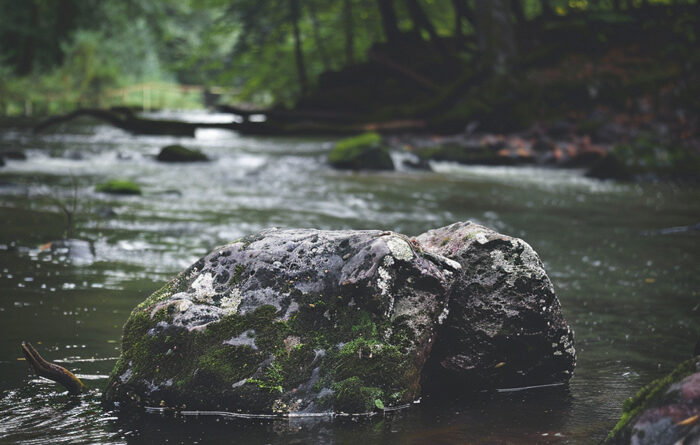
Introduction to Environmentally Conscious Funeral Planning in Houston
As the world becomes increasingly aware of environmental issues, the way we consider end-of-life services is also changing. Houston, a dynamic and diverse city, has seen a growing interest in environmentally conscious funeral planning. With this shift, families and individuals are taking active steps to minimize the ecological impact of their final farewell. The decision to plan an eco-friendly funeral is not just about the immediate gathering; it’s a choice that reflects a broader commitment to sustainability and respect for the natural world.
Understanding Green Funerals and Burials
Green funerals and burials focus on reducing the environmental footprint of the end-of-life process. This approach involves the use of biodegradable materials and eschewing practices that harm the environment, such as embalming with toxic chemicals, using metal caskets, and maintaining manicured burial grounds with pesticides and herbicides. Instead, green burials may use simple shrouds or biodegradable caskets, and burial sites are often left in a more natural state, contributing to habitat conservation.
Options for Eco-Friendly Caskets and Shrouds in Houston
In Houston, a variety of options for eco-friendly caskets and shrouds are at one’s disposal. These environmentally considerate alternatives are constructed from materials such as bamboo, willow, or recycled paper. They are intended to decompose naturally once buried, thus ensuring the burial site remains as untainted as possible. Furthermore, the use of shrouds made from natural fibers like cotton or linen provides a simple and sustainable option for those wishing to reduce their environmental impact.
Natural Burial Sites in the Houston Area
When choosing a final resting place that aligns with ecological values, Houston residents can explore natural burial sites. These sites promote the conservation of natural habitats and create spaces where the landscape is preserved or restored. Bodies interred in these settings are not embalmed, allowing for a process that returns the body to the earth in a way that supports the surrounding ecosystem. Such natural burial grounds are becoming more available and offer a serene alternative to conventional cemeteries.
Reducing Carbon Footprint Through Local Services
Minimizing the transportation-related carbon footprint is another important aspect of eco-friendly funeral planning. Houstonians can accomplish this by selecting funeral homes, burial sites, and other services within close proximity to reduce the emissions associated with long-distance travel. This decision not only benefits the environment but often leads to a more intimate and personal service with local significance.
Floral Arrangements and Memorials with Environmental Integrity
Conventional floral arrangements often involve flowers that are not grown locally, which adds to the carbon footprint due to transportation, and may use preservatives and pesticides. An eco-friendly approach could involve sourcing flowers from local, organic growers, or even choosing live plants that can be planted in memory of the deceased, providing a lasting, living tribute. Similarly, memorial stones or markers can be crafted from locally-sourced, natural materials to minimize environmental disruption.
Incorporating Technology for Virtual Attendance
Advances in technology have made it easier to include those who cannot be physically present for the service, potentially reducing the environmental impact of travel. Live streaming the funeral or memorial service allows friends and relatives to participate from anywhere in the world, reducing the carbon footprint associated with travel and providing an inclusive experience for all mourners.
Planning for an eco-friendly funeral
For families in Houston wishing to arrange an eco-friendly funeral, planning is key. By selecting services and products that align with environmental values, it’s possible to organize a respectful and beautiful service that also preserves the planet for future generations. To facilitate this process, engaging with funeral directors in Houston who are experienced in green practices can be incredibly helpful. They can guide you through the available options, including biodegradable urns, eco-friendly transportation, and natural burial sites, ensuring that the funeral reflects the deceased’s wishes and environmental ethos.
The Legal Aspects of Green Burials in Texas
Understanding the legal landscape surrounding green burials is essential for Houston residents. Texas law permits green burials, but it’s essential to confirm that local ordinances and regulations are observed. This may include specifics about where natural burials can occur and how the body must be prepared for interment. Professional advice can simplify this aspect of planning, as funeral directors well-versed in state and local laws will be able to provide valuable guidance.
Conclusion
Environmental considerations in funeral planning are an integral part of today’s society, reflecting the collective responsibility to protect our natural resources. In Houston, those who wish to leave a lighter footprint have many options to choose from. Whether it’s selecting a biodegradable casket, opting for a natural burial site, or using technology to reduce the need for travel, there are numerous ways to conduct a funeral that honors both the deceased and the environment.
By embracing eco-friendly practices, Houston is exemplifying a commitment to sustainability even in the face of loss. This thoughtful approach to funeral planning carries profound significance. It not only pays tribute to the memory of loved ones but also demonstrates a lasting investment in the health and beauty of our planet for generations to come. For those preparing to say goodbye to a family member or friend, considering the environmental impact of funeral arrangements is a profound way to celebrate a life well-lived while nurturing the world we all share.

What are green burial options?
Green burial options are environmentally friendly alternatives to traditional burials that aim to minimize ecological impact. This practice typically involves forgoing embalming, using biodegradable caskets or shrouds, and avoiding the use of concrete vaults. Some green cemeteries also integrate the gravesite with the natural landscape, planting native trees or shrubs instead of using headstones.
Can cremation be considered an eco-friendly practice?
Cremation can be more eco-friendly than traditional burial due to its reduced land use; however, it is not without environmental impact. The cremation process consumes significant energy and releases greenhouse gases and mercury emissions. For a more eco-friendly approach, some choose water-based cremation, also known as alkaline hydrolysis, which uses less energy and produces fewer emissions.
What is a living memorial, and how does it benefit the environment?
A living memorial involves planting a tree, shrub, or garden in memory of the deceased. Instead of erecting stone monuments, the living tribute grows and contributes positively to the environment by providing oxygen, supporting wildlife habitats, and absorbing carbon dioxide. This practice not only honors the memory of a loved one but also offers a lasting and sustainable benefit to the ecosystem.





